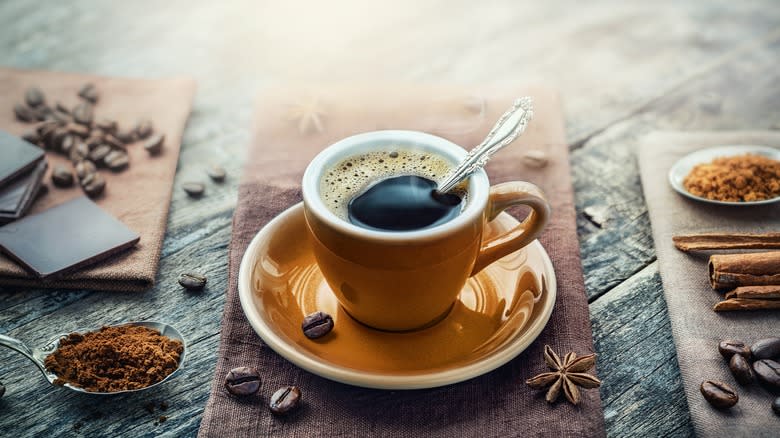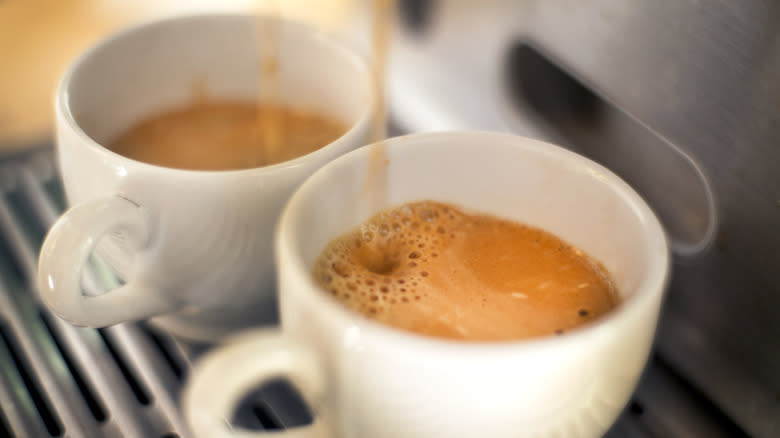It's A Total Myth That Decaf Coffee Doesn't Have Caffeine

Some coffee drinkers consume their joe for the energizing hit of caffeine in each cup, while others simply enjoy the beverage's smooth flavor. Suppose you prefer to avoid caffeine altogether or are trying to lower your daily caffeine intake but you want to incorporate a warming cup of coffee into your day. A decaffeinated coffee may seem like the perfect solution.
Unfortunately, it is a myth that decaf coffee is entirely caffeine-free. You will still encounter low levels in each cup. The processes through which caffeine is removed from the coffee beans do a good job of stripping most of it away, but some traces are still left behind. It is estimated that 97% of caffeine is removed during the decaffeination process. The 3% left over is minor but not necessarily negligible. Though decaf coffee is a step in the right direction for those trying to minimize their caffeine consumption, it is still wise to keep those trace amounts in mind.
Read more: The Absolute Best Energy Drinks, Ranked
It Is Not Easy To Completely Get Rid Of Caffeine

Decaf coffee is significantly lower in caffeine than regular coffee; a cup of coffee contains 95 to 200 milligrams of caffeine, and a decaf cup contains between 3 and 15 milligrams. Coffee producers have developed methods that efficiently strip the beverage of its naturally occurring caffeine, but they have yet to find a way to guarantee there will be no traces of caffeine left over. Manufacturers will soak raw coffee beans in water and solvents that draw most of the caffeine out. This technique can only partially isolate the energizing drug, though.
You may wonder what happens to all the caffeine removed in the process. The caffeine removed from decaf coffee ends up in the hands of the soda industry and pharmaceutical companies that redirect it into their products -- the caffeine in a bottle of Coca-Cola or Pepsi is the byproduct of the coffee decaffeination process.
Can A Decaf Coffee Still Cause A Caffeine Buzz?

With the trace amounts of caffeine in a decaf cup, a coffee drinker may wonder whether they would feel the drug's effects. The answer changes on an individual basis. Some people are more caffeine-sensitive than others due to factors like age, medications, and baseline anxiety levels. Those who consume caffeine more frequently build up a tolerance that can make small amounts virtually ineffective. You can test for yourself whether decaf coffee causes any side effects associated with caffeine and decide whether it is worth consuming.
Alternatively, you could explore other beverage options that are naturally caffeine-free. Herbal teas like chamomile and rooibos can provide the same level of warmth, comfort, and flavor in each cup. Mushroom powder is a secret ingredient for mushroom coffee, a substitute for traditional coffee that gained traction in 2018. Taste around for the beverage that fills your cup, caffeinated or not.
Read the original article on Daily Meal.

